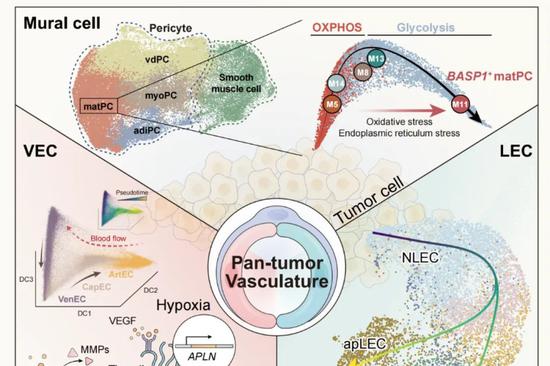Atlas of blood vessels to help fight cancers
A Chinese research team has published a groundbreaking study in Nature, creating the world's most comprehensive map of blood vessel networks for various cancers. This advancement holds promise for earlier cancer detection, improved drug development and personalized treatment strategies.
Led by Yin Mingzhu, vice-president of Chongqing University Three Gorges Hospital, the team included scientists from prestigious institutions like Tsinghua University and Peking Union Medical College Hospital. Their study, titled "Tumor Vasculature at Single-Cell Resolution," sheds light on the intricate process of tumor angiogenesis — the formation of new blood vessels — paving the way for more effective anti-angiogenic therapies in clinical practice.
Angiogenesis is crucial for tumor growth and survival. By disrupting this process, anti-angiogenic therapies aim to starve tumors, potentially hindering their development or even shrinking them. Blood vessels act as a delivery system, supplying nutrients that allow tumor cells to multiply and spread.
"By pinpointing the unique characteristics of the tumor vascular microenvironment and identifying key endothelial (blood vessel membrane) cells fueling these tumors, we can develop a strong foundation for personalized treatment based on interrupting the nutrient supply," explained Yin.
The team analyzed single-cell RNA sequencing data from 31 human cancer types, revealing distinct and common functionalities within the cells.
Their findings highlight potential markers of disease progression.
"They could serve as powerful indicators for sustained therapeutic benefits in future clinical settings," Yin said.
Building upon these findings, the research team is fostering collaboration between academia, industry and clinical settings. This collaboration aims to develop tools for early cancer detection and guide therapy selection for individual patients.
"One potential application is a diagnostic test kit that identifies early signs of cancer or predicts a patient's suitability for specific therapies," said co-author Li Xin, a researcher at Chongqing University.
This research aligns with Chongqing University's vision of becoming a top medical school by merging its engineering strengths with medical research.

